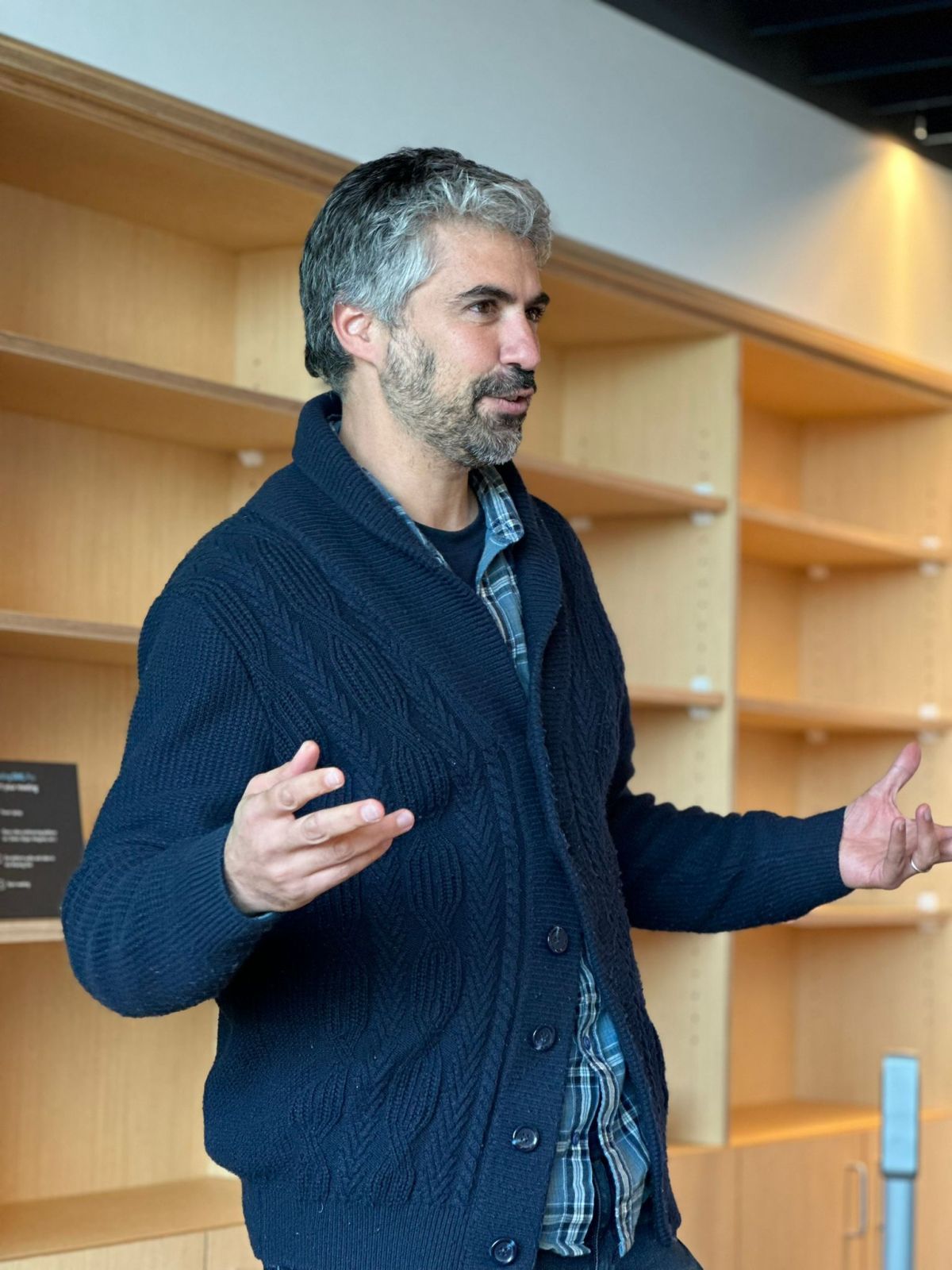In 2011, Eric Pignot enrolled in business school at MIT after seven years in the technology sector. He was seeking more control over his destiny, and a way that he could make a difference.
At MIT, a few critical things happened. One was that, after a summer internship, he turned down a chance to apply for a job at Amazon. The job didn’t meet his deepest callings.
And he meet an entrepreneur from Cameroon, Cyrille Nkontchou, a Harvard Business School graduate. In conversations with Nkontchou, about the need for high-quality education in Africa, Pignot felt he’d found what he was meant to do. Together, they developed a plan to open schools across the African continent for learners who are under-represented in top universities worldwide. Their end-goal was to develop a model of primary and secondary school that increases drastically the chances of their learners to attend great universities.
A decade later, Enko Education, the company they founded, is on track to educate 20,000 primary and secondary learners in the next five years, and 100,000 in the next 10. The company aims to deliver an education geared to prepare children for a future no one can know. “For that, we support our learners to learn how to learn and take ownership. We support them to develop those much-needed soft skills such as critical thinking, teamwork, problem-solving,” Pignot said.In the next 30 years, a billion children are expected to enter the education system across the African continent. Private schools are growing more rapidly than public schools. At Enko Education, tuition is about $3,000, a fifth of that at competing schools with similar curricula.
(Disclosure: This profile was written while Elizabeth MacBride was a Journalism Fellow at the MIT Legatum Center).
School in Cameroon
The company’s success wasn’t always certain. In fact, Enko almost closed before it truly opened. After Pignot and Nkontchou met at MIT, they raised funds from their friends and family and raided their savings to launch the first school. They both were committed: An expat whose father work in the global banking sector, Pignot had grown up attending international schools. Nkontchou was the son of a teacher.
The duo decided they would open Enko’s first location in Cameroon, where Nkontchou’s mother had a school. They found a building to rent; enthusiastic families, and teachers to carry their vision forward. They decided to start with 10th graders; that would give them enough time to get the learners ready for college. But when the day came to open, only four students had enrolled.
It was their make-or-break moment as entrepreneurs. “We had to decide: Should we go ahead?” Pignot remembered. “We decided. We’re going to learn along the way. We start, we learn, we’re going to improve.”
Of those four 10th graders, one went to Yale; one went to Science Po in Paris (the French equivalent of HKS); one went to the Hult Business School in San Francisco; and the other to Lancaster University in Ghana, proving the model.
Today, Enko Education has 5,000 students. The company operates 14 schools in nine countries, and is raising USD 70M to accelerate its growth by acquiring existing schools.
Like the students, Pignot is still learning. He gave this interview in Cairo, as a Legatum Foundry Fellow, one of a cohort of 12 entrepreneurs from emerging markets. Legatum Foundry Fellows are chosen through a competitive process, for a program designed at MIT’s Legatum Center for Development & Entrepreneurship to support entrepreneurs as leaders within their societies. Pignot said he applied for the fellowship to help him think through the role of entrepreneurs – who often move globally as they raise capital and find markets – on the African continent.
“I wanted to think these things that have major societal, political and economic ramifications through in a safe space, with other entrepreneurs,” Pignot said.
For instance, he wants to avoid perceived contribution to brain drain, as many of Enko’s learners go study outside Africa, as well as the role of “white savior” as the co-founder of a company serving mostly Black families on the continent.
Pignot had the support of his co-founder in the one-year Legatum fellowship.
“We address those topics with the wrong angle. Brain drain means the world needs African talent, which we have in abundance. So, let’s take full agency of this trend and develop an industry to become the first provider of trained talent to the world,” says Nkontchou. “And as every region of the world, we can only benefit from talent coming to the continent. There is a need for a new narrative to be written.”
Ingredients of Ambition and a Mission
Born in France, Pignot was reared in an expat world, one in which school was a place for learning and connecting across international boundaries. His father worked for Bank BNP Paribas, which meant the family spent time in Europe, Los Angeles and Hong Kong.
In international schools, he experienced what it’s like to be a stranger. And he learned how good it feels when someone reaches out to help.
On his first day at the French International School in Los Angeles, entering first grade, he started school not knowing English – the language in which the class was taught. Seeing Pignot’s confusion as the teacher spoke to him, a boy, also named Eric, stood up and translated.
“I realized how important the support of people around me was,” he said.
Now, he sees Enko’s mission as giving children the skills to learn and take ownership of whatever problems they face. “We support them to develop those much-needed soft skills such as critical thinking, teamwork, problem-solving, the 21st century skills.”
Enko keeps costs low by providing deep training for local staff, renting rather than owning schools, and using a central staff to focus on best practices. So far, 80% of the graduates have gone to top-tier universities.
As a Legatum Fellow, Pignot learned that many entrepreneurs with social missions have the same questions: Why me? What do I bring that others don’t? He doesn’t have all the answers, but he knows that other entrepreneurs have the same questions – and they find the only way forward is to keep going. “The answer comes down to following your heart,” he said.

